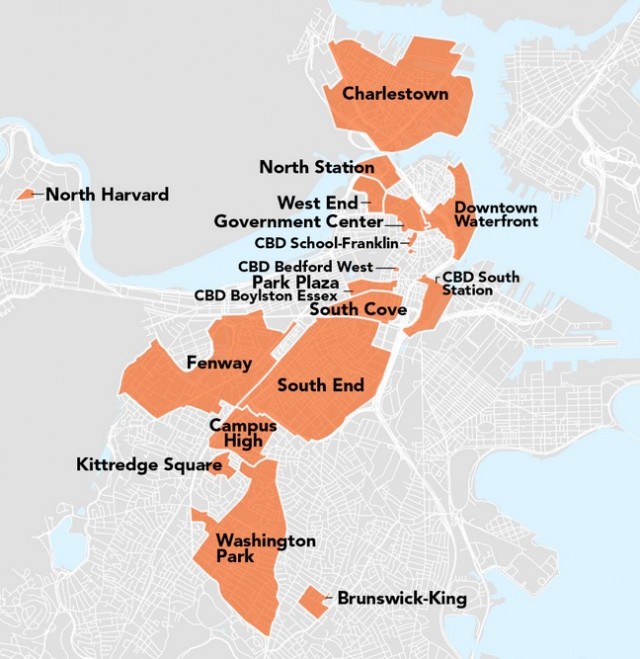North End / Waterfront Residents’ Association (NEWRA) hosted a letter writing discussion to oppose the proposed extension of Urban Renewal Zone powers by the Boston Redevelopment Authority (BRA). The BRA has asked for 10-year extensions for 14 Urban Renewal Zones, covering a large percentage of the land in the downtown area including the southern and waterfront areas of the North End.

NEWRA’s opposition is based on the lack of due process and transparency regarding the BRA’s urban renewal powers, including eminent domain. From the NEWRA site:
Zoning decisions made by the BRA in Urban Renewal Zones cannot be appealed in Superior Court, as can conventional Zoning Board decision here in Boston. So, if the BRA make a decision about a project in an Urban Renewal Zone (say, on Lewis Wharf), there’s no citizens’ right to appeal. Seems unconstitutional, right? Welcome to the rules of Urban Renewal.
NEWRA urges all residents to write to all City Councilors, the Mayor, and DHCD to let them know that you oppose extending the Urban Renewal Zones.
NEWRA is amenable to having the zones sunset in two years rather than the ten-year extension requested by the BRA. In the coming weeks, the matter will soon go before the Boston City Council as well as State officials.
View the video above for the discussion led by NEWRA President Ford Cavallari on NEWRA’s position regarding the BRA’s urban renewal zone extension. The Residents’ group has compiled a map showing the BRA zones and projects.
See NEWRA’s special “Urban Renewal Zone Letter Campaign” webpage for more information, including sample letters and email lists.




Why is downtown North End not marked on the map? Is the BRA urban renewal mapmaker trying to make the North End neighborhood disappear?
The time has long since past when the BRA can have unlimited power over housing projects that can severely damage the social fabric of our neighborhoods. One solution is to restore the balance of government to approval process of neighborhood development..Without electoral accountability any city agency is ripe for corruption, if not in fact but in appearance. By incuding the city council in the approval process, the people’s elected officials will determine what happens in the neighborhood they were elected to oversee.
There also has to be a better way to provide incentives for developers to include affordable housing in their developments than the inclusionary development fund. A policy that states that developers can “buy out” the number of affordable units implies cash payments are more important than affordable housing units.
We, the residents of Boston need to take back control of what the City can or cannot do to our neighborhoods.